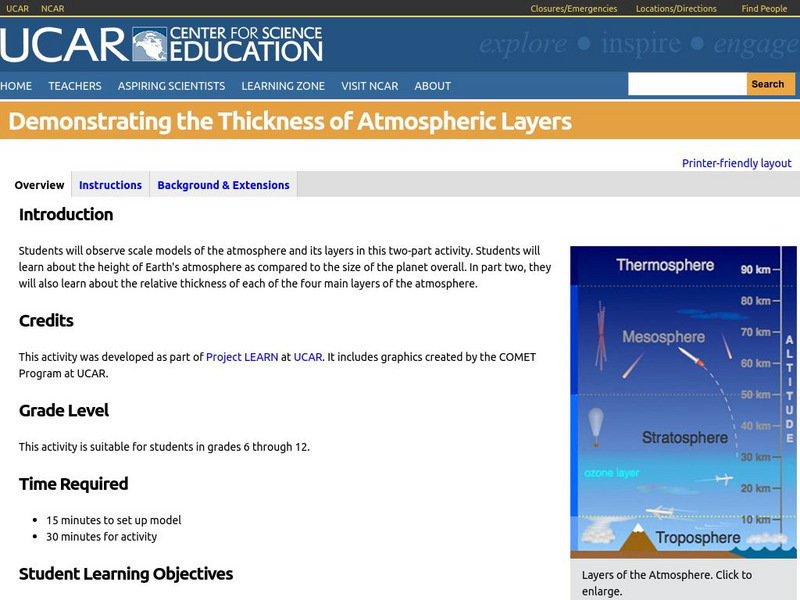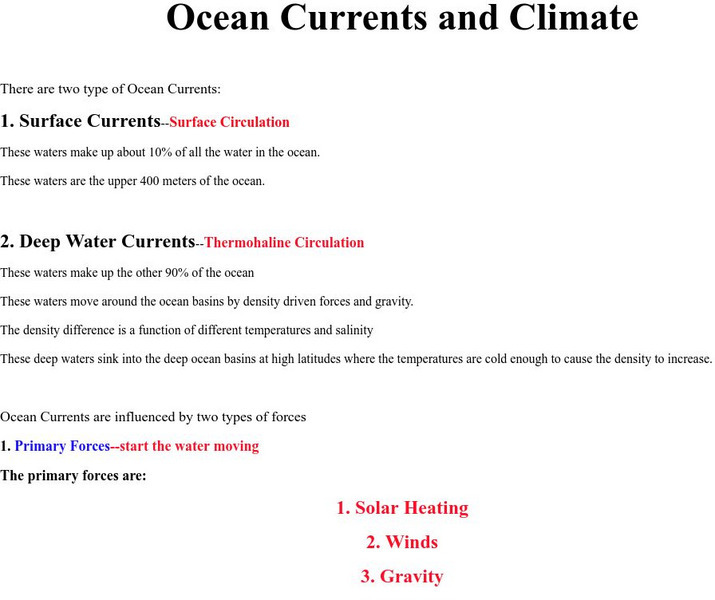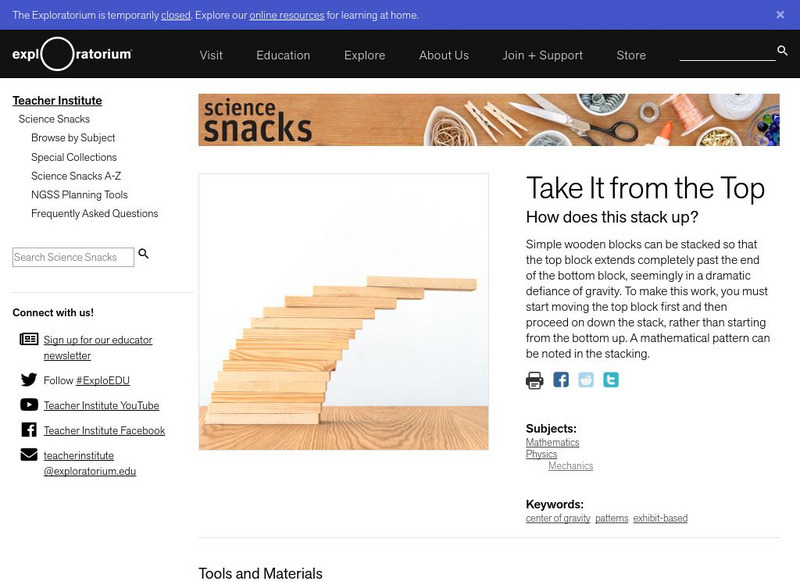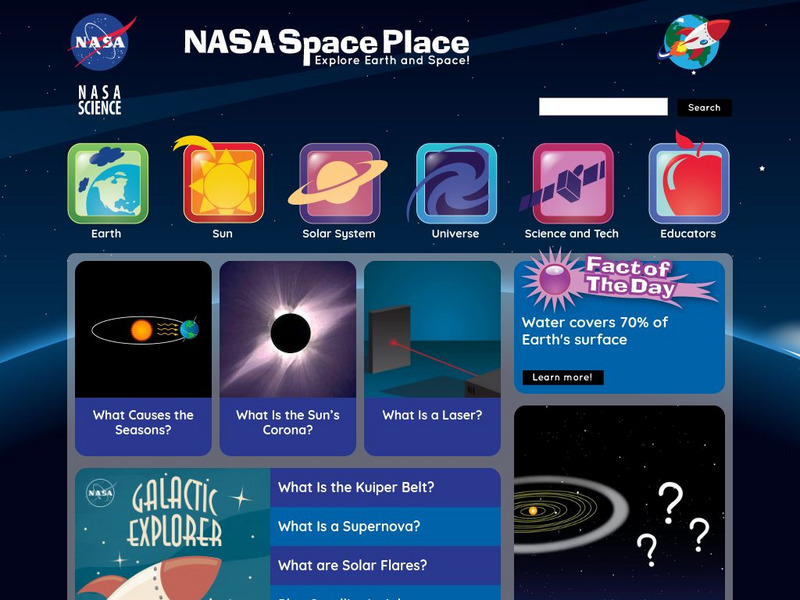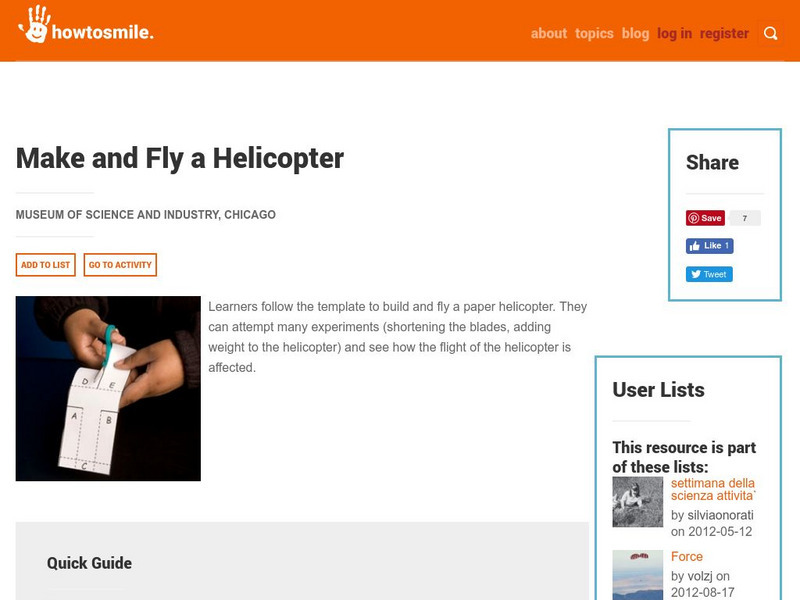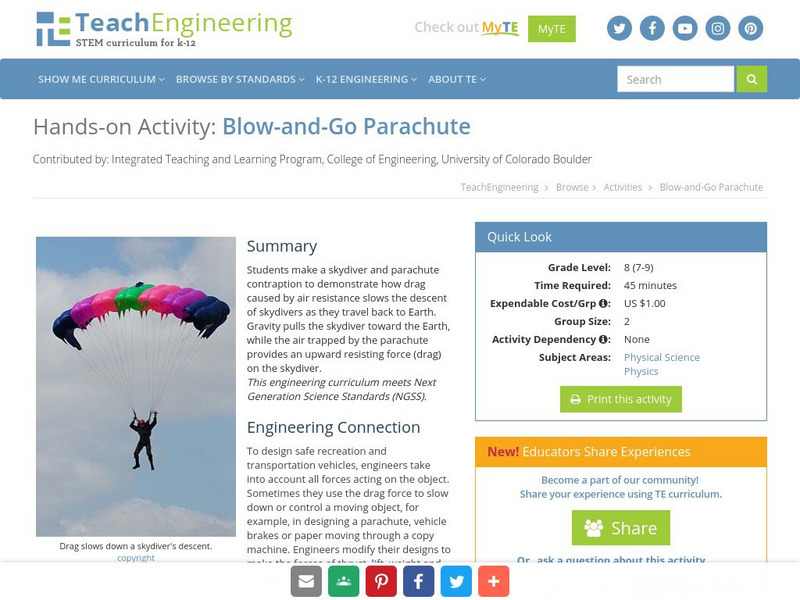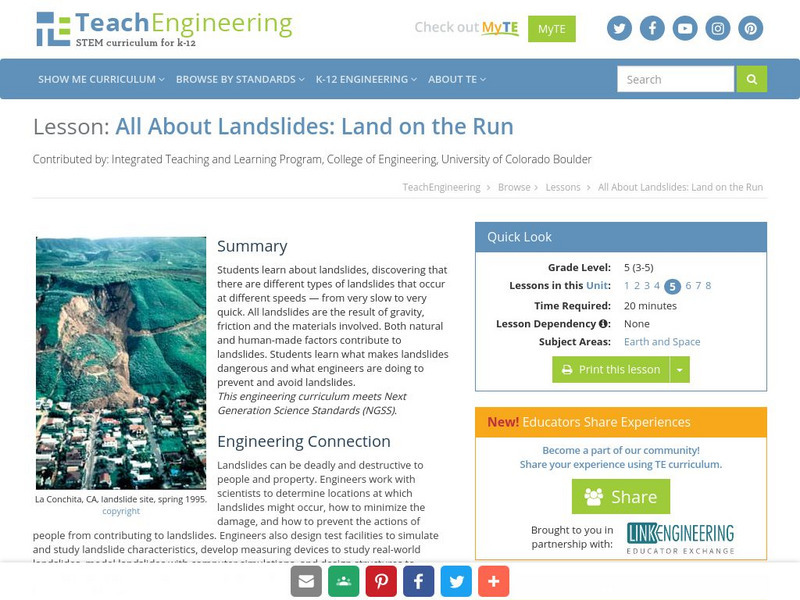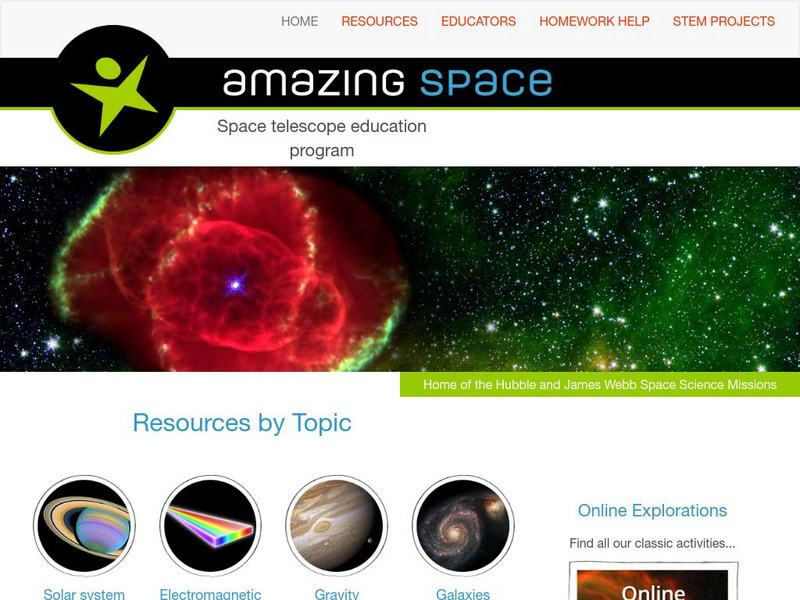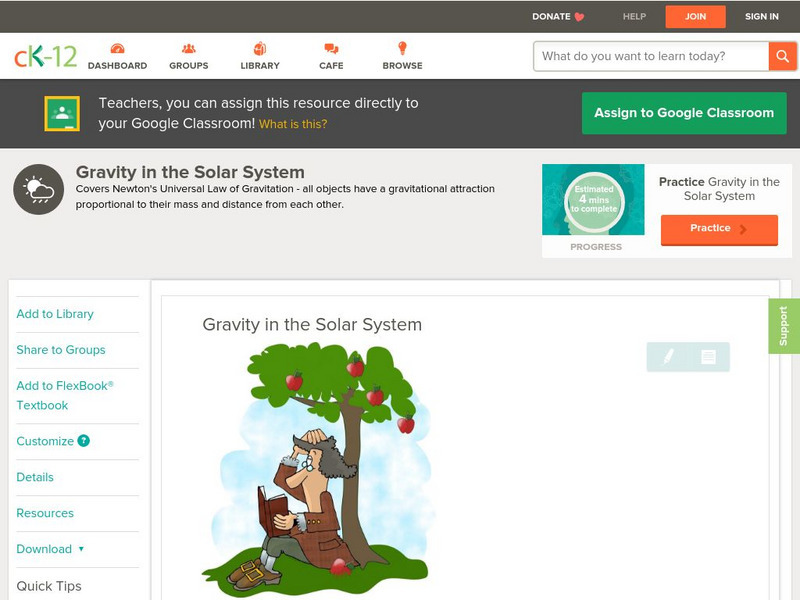University of Colorado
University of Colorado: Ph Et Interactive Simulations: Masses and Springs
Use this interactive, animated lab to explore conservation of mechanical energy.
University Corporation for Atmospheric Research
Ucar: How High Does the Atmosphere Go?
This lesson shows the parts of the atmosphere and their size (thickness) relative to the size of the Earth. It includes background information, lesson outline, links to standards and assessments.
Channel 4 Learning
4 L: Science Essentials: Get Physical
Find a review of many aspects of the physical world. Simple explanations of electricity, gravity, and the solar system. Included are materials for teachers to use for enrichment.
University of Southern California
University of Southern California: Ocean Currents and Climate
The climate of our planet is greatly affected by Earth's oceans. Learn here about the different oceanic currents and the role those currents play on climate.
Sophia Learning
Sophia: Gravity
This lesson will explain how gravity as a force as well as identify factors that affect the gravitation attraction between objects.
Exploratorium
Exploratorium: Science Snacks: Take It From the Top
Students defy gravity by stacking blocks in different ways in this exercise. Other projects are linked to this lesson as well.
E-learning for Kids
E Learning for Kids: Science: Pirates: What Are Some Forces Around Us?
Covers the meanings of force, friction, and gravity, and the differences between magnetic and elastic spring force, and between weight and mass. The effect of air resistance on an object's motion is also touched upon.
Exploratorium
Exploratorium: Science Snacks: Falling Rhythm
An engineering design process project for students to create a regular rhythm of beats by spacing weights along a string and then dropping the string.
Other
Isaac Newton
A page at the Isaac Newton (1642-1727 CE) Institute for the Mathematical Sciences website. This page, the contents of which come from the Microsoft Encarta encyclopedia, describes the upbringing, the education, the scientific and...
NASA
Nasa: The Space Place: What's a Barycenter?
This site from NASA helps in explaining a barycenter. "In the case of the Earth and the Sun, both bodies actually revolve, or spin, around the center of the mass between them. This point is called the barycenter."
NASA
Nasa: The Space Place: Lisa Space Mission Gives Humans a Sixth Sense
This site explains NASA's plan to engineer a space probe that could measure the gravitational waves that Einstein predicted exist in space. Learn more about this space probe named LISA. There is also a crossword to check your...
NASA
Nasa: The Space Place: Lisa Space Mission Gives Humans a Sixth Sense
This resource explains NASA's plan to engineer a space probe that could measure the gravitational waves that Einstein predicted exist in space. Learn more about this space probe named LISA. There is also a crossword to check your...
Other
National Science Digital Library: Smile: Make and Fly a Helicopter
Sourced by Chicago's Museum of Science and Industry, students and educators will engage in building a helicopter and making it fly. Adaptations of extra weight or shortening blades will alter flight abilities making for an exciting...
TeachEngineering
Teach Engineering: What a Drag!
The purpose of this activity is to demonstrate how drag affects falling objects. Students will make a variety of shapes out of paper and see how size and shape affects the speed with which their paper shapes fall. They will also be able...
TeachEngineering
Teach Engineering: Blow and Go Parachute
Students make a skydiver and parachute contraption to demonstrate how drag caused by air resistance slows the descent of skydivers as they travel back to Earth. Gravity pulls the skydiver toward the Earth, while the air trapped by the...
TeachEngineering
Teach Engineering: How Do Things Fall?
Students learn that it is incorrect to believe that heavier objects fall faster than lighter objects. By close observation of falling objects, they see that it is the amount of air resistance, not the weight of an object, which...
TeachEngineering
Teach Engineering: Hanging Around
Students learn about weight by building a spring scale and observing how it responds to objects with different masses.
TeachEngineering
Teach Engineering: Design a Parachute
After a discussion about what a parachute is and how it works, students will create a parachute using different materials that they think will work best. The students will test their designs, which will be followed by a class discussion...
TeachEngineering
Teach Engineering: Land on the Run
Students learn about landslides, discovering that there are different types of landslides that occur at different speeds - from very slow to very quick. All landslides are the result of gravity, friction and the materials involved. Both...
Space Telescope Science Institute
Space Telescope Science Institute: Amazing Space
Amazing Space promotes the "science and majestic beauty of the universe for use in the classroom." Here you can find learning activities, lesson plans, teaching guides, and helpful tips for students eager to learn about space and space...
CK-12 Foundation
Ck 12: Algebra: Square Root Applications
[Free Registration/Login may be required to access all resource tools.] Solve applications using square roots.
CK-12 Foundation
Ck 12: Earth Science: Gravity in the Solar System
[Free Registration/Login may be required to access all resource tools.] Understand the role of gravity in space.
CK-12 Foundation
Ck 12: Earth Science: Gravity in the Solar System
Understand the role of gravity in the solar system. [Free Registration/Login may be required to access all resource tools.]
Utah Education Network
Uen: Gravity: Head for the Hills
Using this interactive resource will involve making predictions about the effects of gravity in different conditions.



